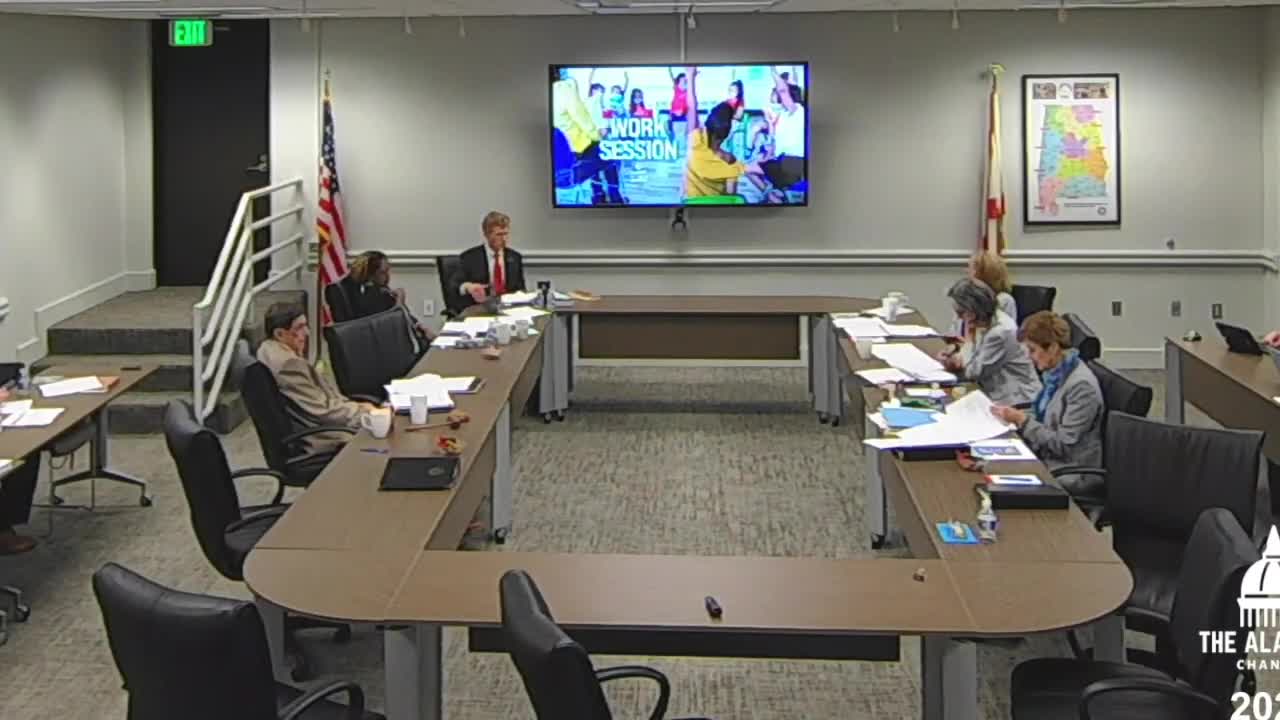State Superintendent Announces Appointments to Alabama Math Task Force
September 29, 2025 | Alabama State Department of Education, State Agencies, Executive, Alabama
This article was created by AI summarizing key points discussed. AI makes mistakes, so for full details and context, please refer to the video of the full meeting. Please report any errors so we can fix them. Report an error »

In a recent work session, the Alabama Board of Education discussed the formation and responsibilities of the newly established Math Task Force, a key initiative aimed at enhancing mathematics education across the state. This task force, created under the Numeracy Act, is designed to provide recommendations for high-quality, evidence-based mathematics curricula and intervention programs.
State Superintendent Dr. Eric Mackey outlined the structure of the task force, noting that it consists of appointed members from various educational backgrounds, including teachers, administrators, and representatives from higher education. Unlike the Literacy Act, which allowed for lifetime appointments, the Numeracy Act stipulates that members will serve two-year terms, with the possibility of one additional term, ensuring a rotation of fresh perspectives.
Dr. Mackey emphasized the importance of these appointments, which include representatives from across Alabama, ensuring that every district has a voice in the discussions. He mentioned that the task force would meet quarterly, with the first in-person meeting anticipated for October. While initial meetings may be held via Zoom, the goal is to facilitate in-person gatherings to foster collaboration among members.
A significant change from previous legislation is the allowance for reimbursement for task force members, which aims to alleviate any financial burden associated with their participation. This is particularly important for educators who may need to attend meetings during the school year.
The task force's primary responsibilities include evaluating and recommending comprehensive mathematics curricula that align with state educational standards. This initiative is part of a broader effort to improve educational outcomes in Alabama, particularly in mathematics, which has been a focus of concern among educators and policymakers.
As the task force prepares to convene, the Alabama Board of Education is hopeful that these efforts will lead to meaningful improvements in math education, ultimately benefiting students across the state. The next steps will involve finalizing appointments and setting a date for the upcoming meeting, where members will begin their critical work.
State Superintendent Dr. Eric Mackey outlined the structure of the task force, noting that it consists of appointed members from various educational backgrounds, including teachers, administrators, and representatives from higher education. Unlike the Literacy Act, which allowed for lifetime appointments, the Numeracy Act stipulates that members will serve two-year terms, with the possibility of one additional term, ensuring a rotation of fresh perspectives.
Dr. Mackey emphasized the importance of these appointments, which include representatives from across Alabama, ensuring that every district has a voice in the discussions. He mentioned that the task force would meet quarterly, with the first in-person meeting anticipated for October. While initial meetings may be held via Zoom, the goal is to facilitate in-person gatherings to foster collaboration among members.
A significant change from previous legislation is the allowance for reimbursement for task force members, which aims to alleviate any financial burden associated with their participation. This is particularly important for educators who may need to attend meetings during the school year.
The task force's primary responsibilities include evaluating and recommending comprehensive mathematics curricula that align with state educational standards. This initiative is part of a broader effort to improve educational outcomes in Alabama, particularly in mathematics, which has been a focus of concern among educators and policymakers.
As the task force prepares to convene, the Alabama Board of Education is hopeful that these efforts will lead to meaningful improvements in math education, ultimately benefiting students across the state. The next steps will involve finalizing appointments and setting a date for the upcoming meeting, where members will begin their critical work.
View full meeting
This article is based on a recent meeting—watch the full video and explore the complete transcript for deeper insights into the discussion.
View full meeting
